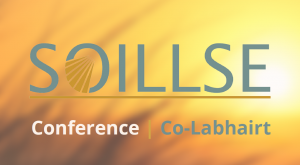Conference Statement | Soillse
Conference Statement
September 6, 2022

The 2022 Soillse Conference: Rooting Minority Language Policy in the Speaker Community
Conference Statement
The Soillse conference held in Stornoway from 29-31 August 2022, advises Scottish Government, Bòrd na Gàidhlig, Local Authorities, development agencies and, importantly, individuals and families speaking and learning Gaelic to come together in a spirit of cooperation and renewal. A renewed spirit of inclusive cooperation is a prerequisite for addressing the societal and demographic challenges of promoting and protecting Gaelic as a living language in our vernacular communities, particularly our island-based Gaelic communities where, until relatively recently, Gaelic was the everyday language.
We call upon decision-makers in Scottish Government, Local Authorities, development agencies and academic institutions to:
1. Base the framework for Gaelic policy decisions and revitalisation priorities on the best available evidence.
2. Acknowledge through practical and appropriate support structures that each community of speakers and network of learners across Scotland has specific requirements.
3. Clearly demonstrate conviction and leadership by working in productive partnership to protect and develop Gaelic communities.
4. Invest and provide adequate funding and resources, in an equitable and efficient manner, in the effective support of island-based Gaelic-speaking communities to provide for sustainable sociocultural and Gaelic development.
5. Recognise and utilise the core role of the family and community as indispensable sociocultural and linguistic cornerstones for Gaelic language maintenance and revitalisation.
6. Place Gaelic development in island communities within a comprehensive whole-of-society approach, recognising the critical importance of supportive socioeconomic and sociocultural conditions, including Gaelic arts and heritage, as prerequisites for credible Gaelic language promotion and protection in creating a basis for a sustainable future for Gaelic in our island communities.
7. Reform and resource the Gaelic development support structure on a regional basis and recognise the various development requirements of varying speaker communities and networks of learners in order to increase mutual cooperation and complementary outcomes for all Gaelic speakers.
8. Realign and strengthen the Gaelic development role of UHI as the primary teaching, learning and research institution to enable a significantly more proactive partnership with Gaelic communities and with development partners; this should entail developing an evidence-based policy framework and public engagement approach, rooted in a pro-active research agenda, to address critical socioeconomic and cultural challenges.
Context
Gaelic vernacular communities are in a societal and demographic crisis, and if current conditions prevail, will no longer be sustainable. The current socioeconomic development support structures for the islands, as well as the Gaelic language policy framework of language promotion with insufficient language protection are presently unable to address the various levels of societal challenge.